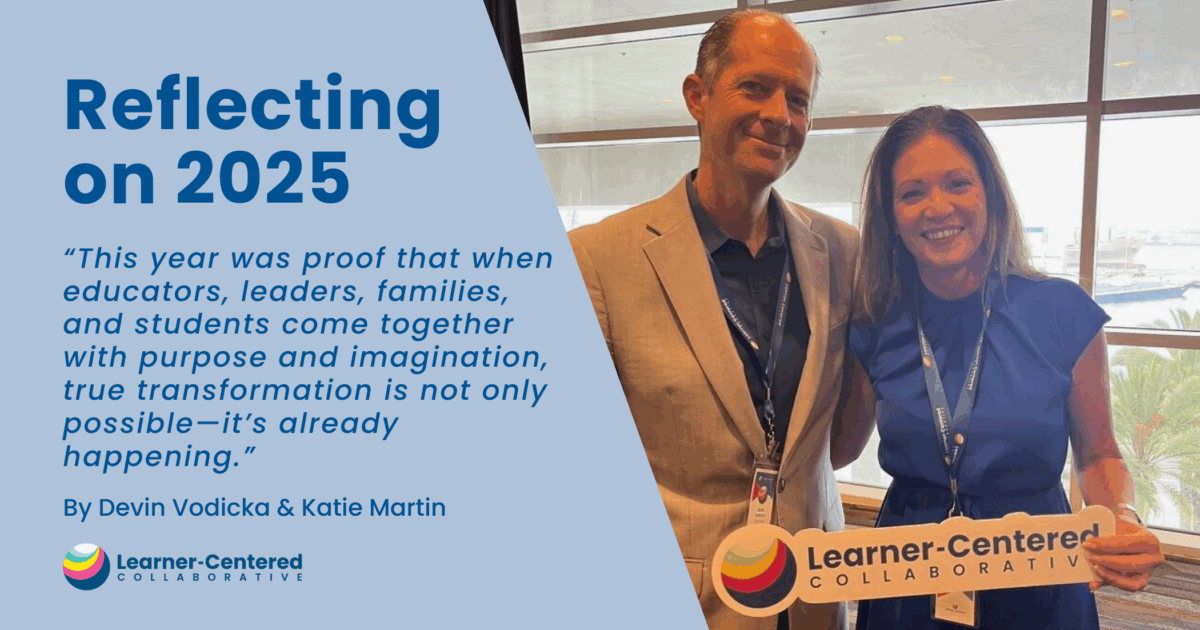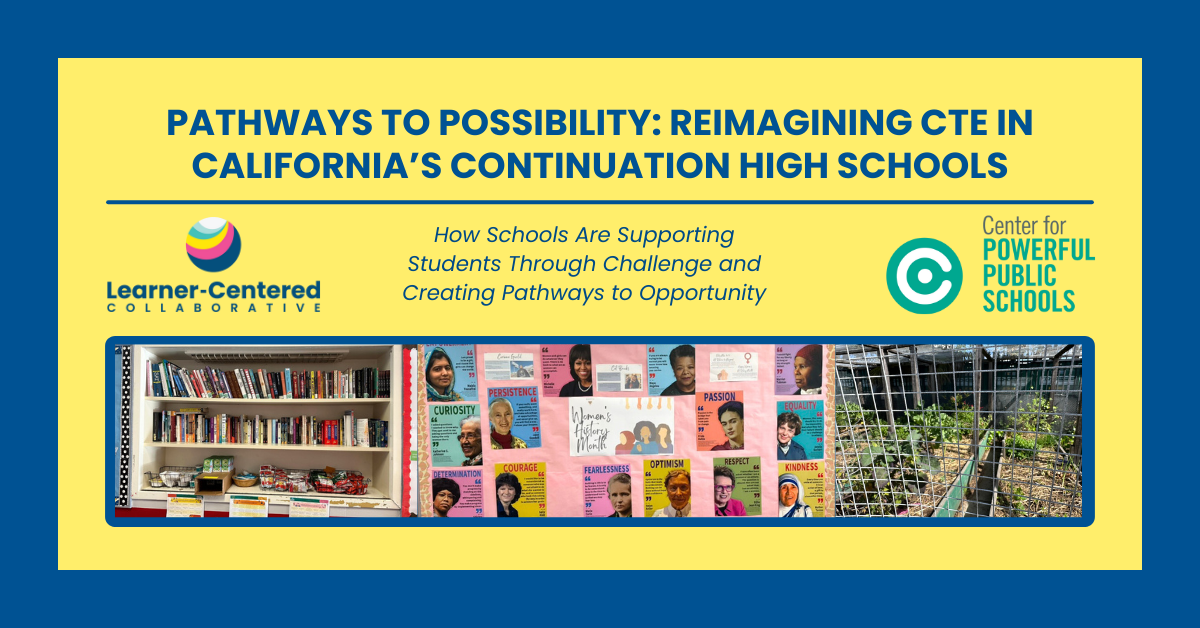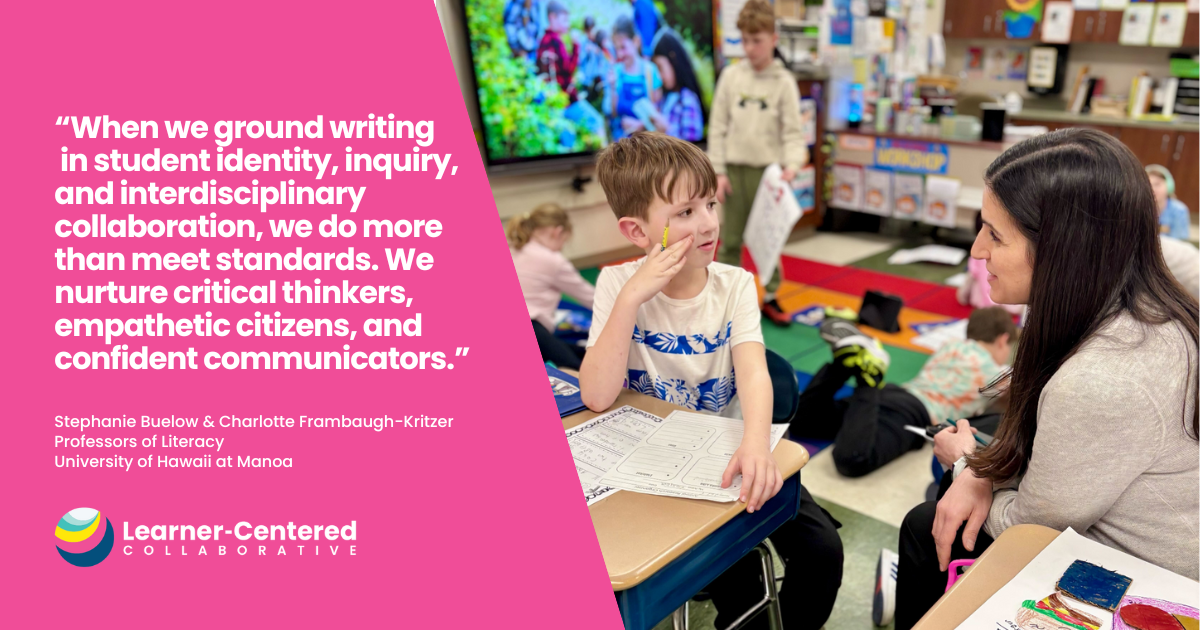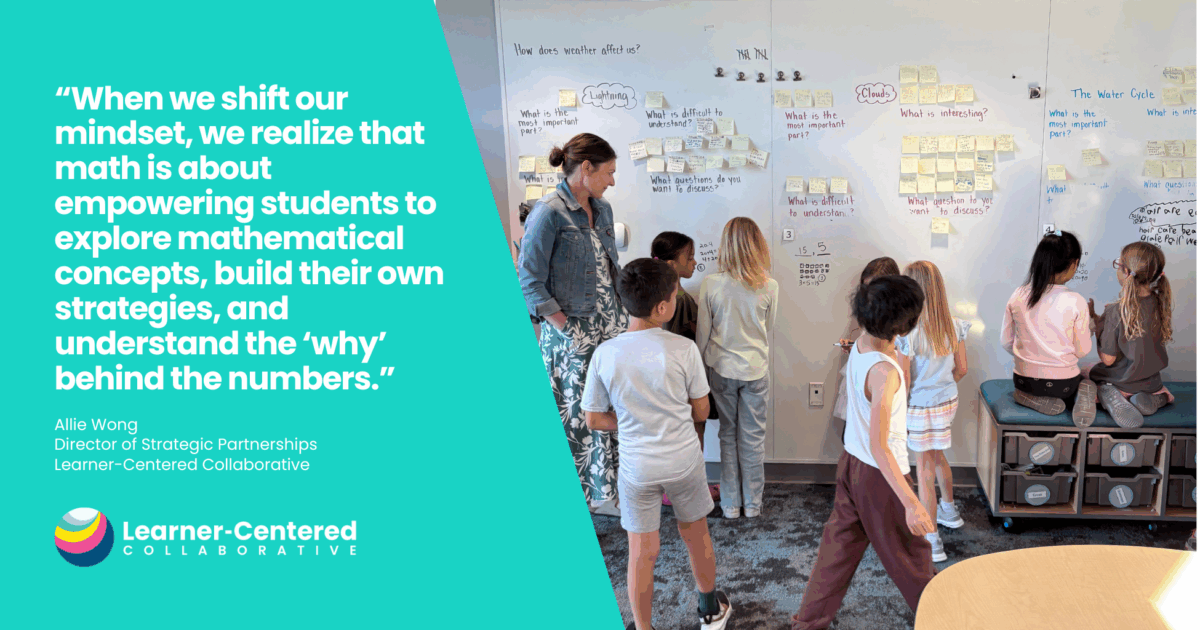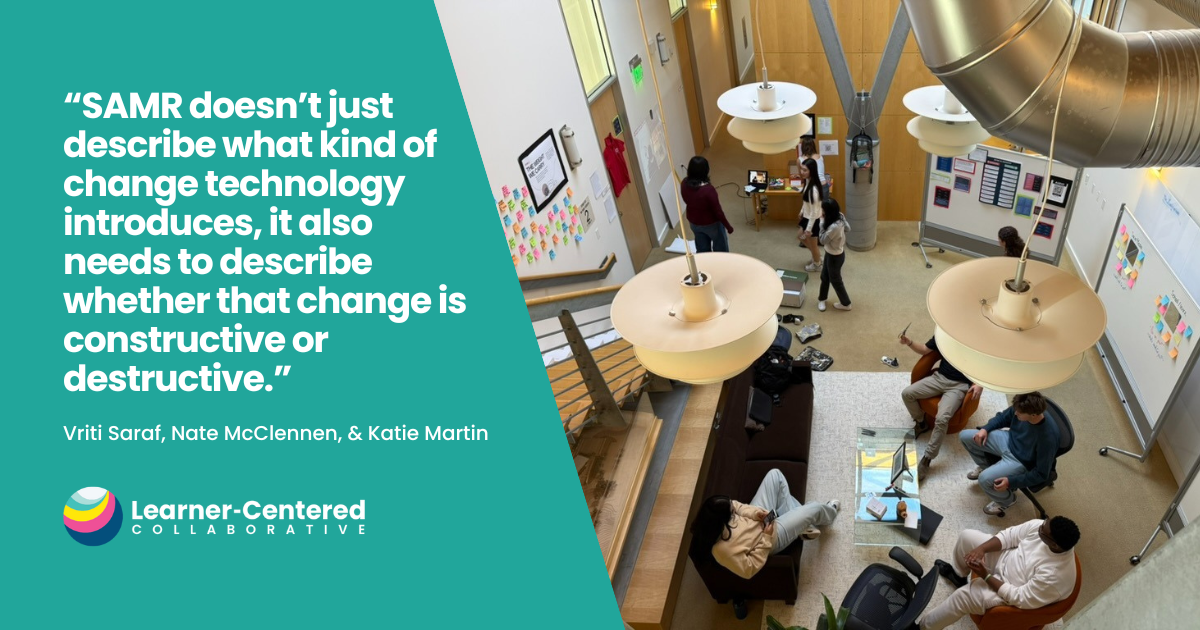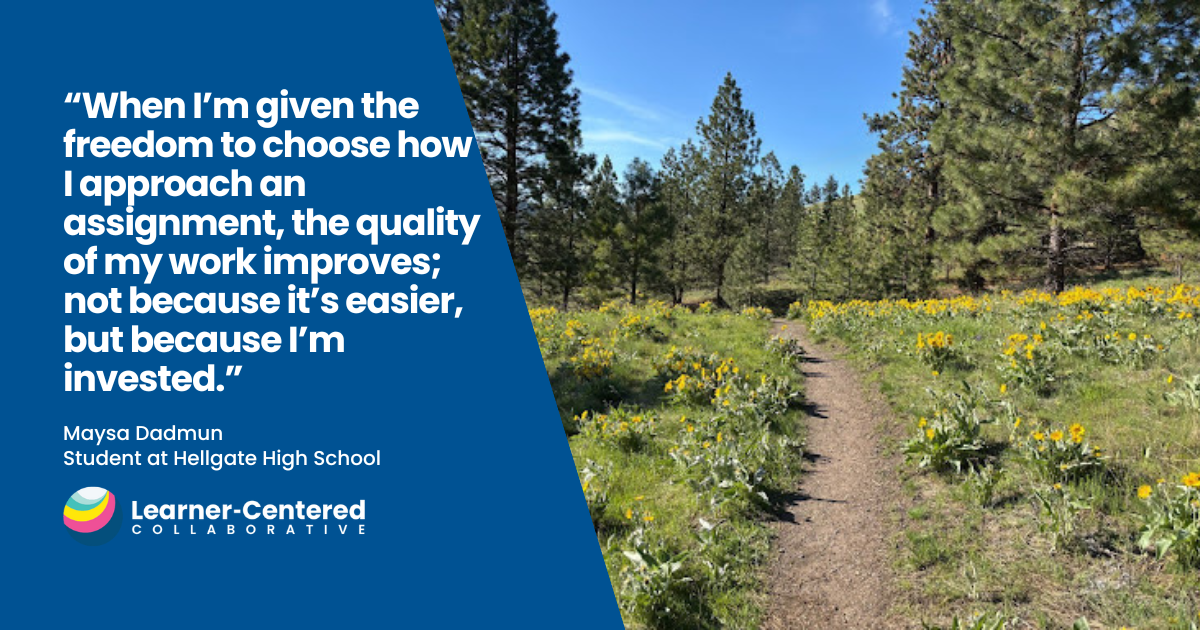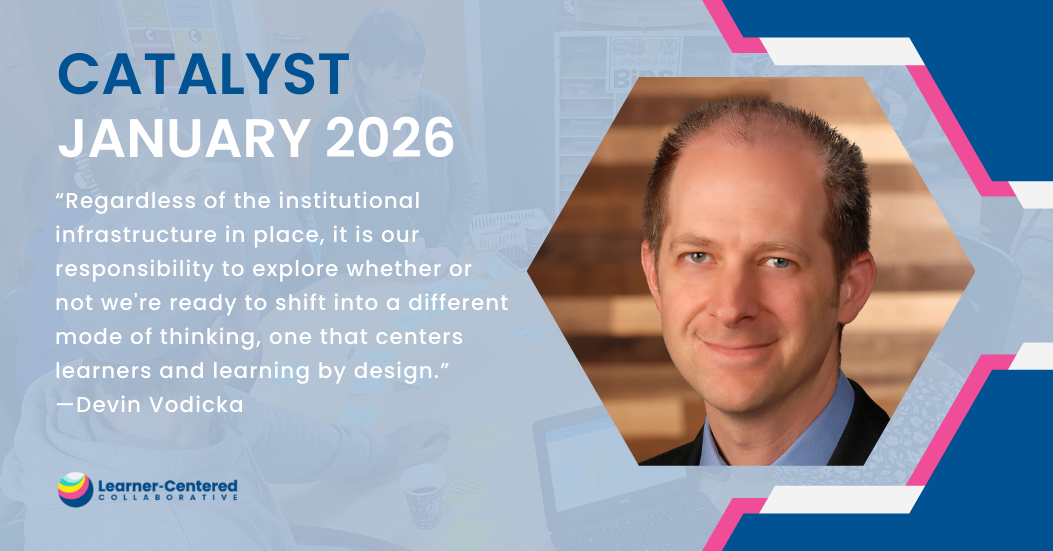The Transformative Power of Surveys for Learner-Centered Improvements

In our continuous journey towards creating more learner-centered environments, Learner-Centered Collaborative has embarked on a pioneering effort to harness the insights of those who matter most in education: learners. By developing and deploying comprehensive learner surveys, we’ve aimed to capture a multi-faceted view of student learning outcomes and experiences. Here’s a glimpse into what we did, what we learned, and the promising path ahead.
A Closer Look at Student Learning Outcomes
Our initial endeavor involved crafting a 27-question student learning outcome self-assessment, focusing on three critical areas: Agency, Collaboration, and Problem-Solving. Administered to 5,586 students across grades 4 through 12 and spanning 12 districts/schools, this initiative aimed to gather data and spark meaningful dialogues with our partners enhancing the learning experience.
However, we learned that while measuring outcomes is crucial, starting with outcomes before examining learning experiences does not yield the actionable insights we hoped for. It highlighted the necessity for more longitudinal data and cumulative analytics to make a substantial impact.
Delving Deeper with the Student Learning Experience Self-Assessment
Building on our initial learnings, we expanded our efforts with a 57-question Student Learning Experience self-assessment. This deep dive assessed the four key components of our learning model: Personalized, Authentic, Competency-Based, and Equitable & Inclusive. To date, we have administered an abbreviated, 18-question version of this survey to over 13,000 students in 11 districts/schools.
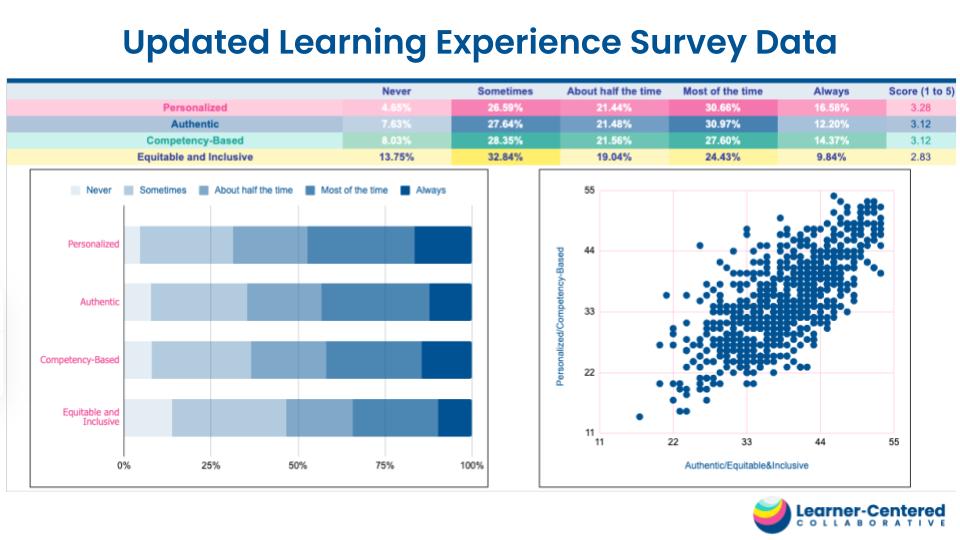
Additionally, we have extended the learning experiences survey to educators, offering a chance to juxtapose the perceptions of these two distinct groups. Frequently, this comparison serves as a confirmation of shared viewpoints or highlights discrepancies between educator and learner perspectives, signaling areas that warrant further exploration.
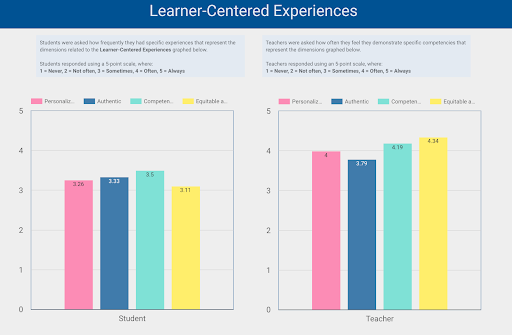
We’ve discovered that combining the analysis of learning experiences survey data with conducting learning walks offers a potent strategy for aligning expectations and enhancing a shared comprehension of learner-centered practices. Reiterating these impactful methods can also uncover shifts over time, presenting the chance to acknowledge advancements and determine subsequent actions grounded in the learners’ experiences.
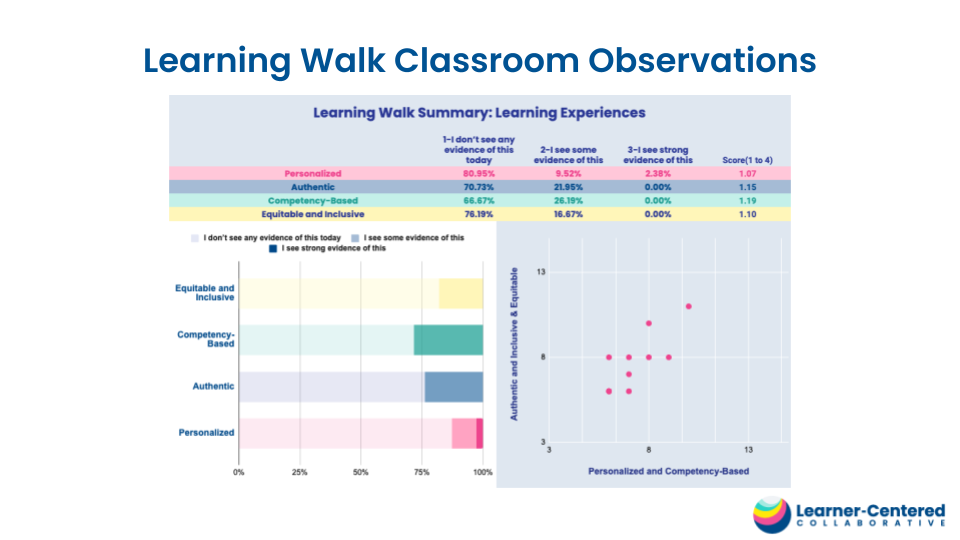 Despite being in the early stages, the enthusiastic response from participating schools has been heartening. Yet, the richness of the data also brings its challenges – particularly, the overwhelming nature of the results and the need for a streamlined process to analyze and present the findings meaningfully.
Despite being in the early stages, the enthusiastic response from participating schools has been heartening. Yet, the richness of the data also brings its challenges – particularly, the overwhelming nature of the results and the need for a streamlined process to analyze and present the findings meaningfully.
Learning Walk Look Fors Tool and Blog
Moving Forward: Lessons Learned and Next Steps
Our journey through these survey projects has underscored several critical insights:
- Student Voices as Catalysts: Student self-evaluation data has proven to be a powerful tool in fostering conversations about educational improvement with our school and district partners.
- The Need for a Balanced Approach: Starting with an examination of learning experiences provides a more actionable foundation than beginning with outcomes.
- Managing Data Overload: The wealth of data from the Learning Experience survey underscores the need for efficient processes to distill and communicate insights effectively.
As we move forward, we are committed to refining our approach. This includes developing strategies for managing the data more effectively, ensuring the surveys are comprehensive and manageable, and continuing to prioritize student voices in shaping their educational journeys.
The power of student surveys lies in their ability to bring student experiences and perceptions to the forefront of educational discourse and decision-making. By continuing to listen, learn, and adapt, we can pave the way for educational environments that are not only more attuned to the needs of learners but also more capable of preparing them to thrive in an ever-changing world.
Ready to take the next step in amplifying learner voice in your educational setting? Enroll in our “Amplify Learner Voice” course to gain practical strategies and tools for incorporating student perspectives into the learning experience.
